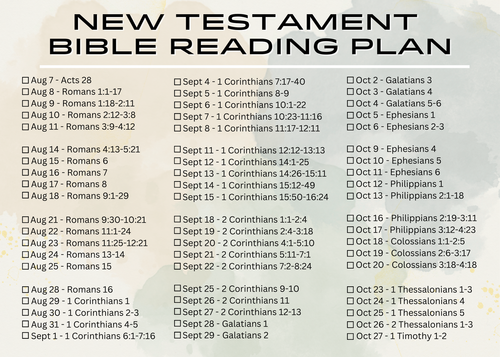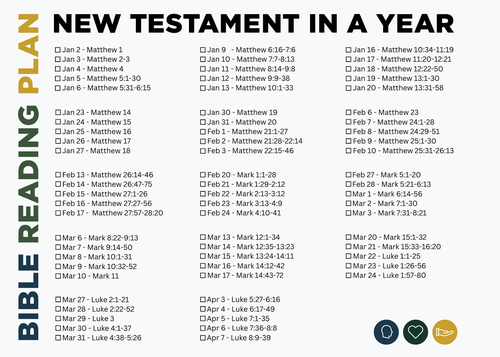False Apostles And Suffering
2 Corinthians 11:1-33
Paul urges the Corinthians to bear with him, even though he is the one bearing with them. He asks them to tolerate some foolishness, despite their own foolish actions. By using self-effacement and sarcasm, Paul dispels the ministerial grandeur imposed by his opponents on the Corinthians. He then reminds them of his deep affection for them. Paul boldly compares his love for the Corinthians to Christ's love as the true husband of his people, positioning himself as the intermediary. His main concern is to protect the purity of the bride, just as the forbidden fruit was a temptation for Eve. Similarly, the Corinthians would betray their truest husband and loving Lord, Christ himself, by succumbing to the impressive ministry of the super-apostles.
The super-apostles distort true ministry, presenting a different Jesus, Spirit, and gospel. They reject Paul but embrace false teaching. Paul sarcastically labels them "super-apostles," revealing their self-exalting nature and the emptiness of their gospel. Reluctantly, Paul defends himself to protect the souls of the Corinthians who rely on his clarification.
Despite lacking knowledge, one can still win others over with the gift of gab. Contrarily, Paul may not be verbally captivating, but his knowledge is solid. He chose not to charge anything as an expression of love for the Corinthians, giving them ample opportunity to receive his ministry. However, this gesture led to complications due to the Corinthians' complexity. Accepting support from another church doesn't equate to "robbing" them; other churches willingly offered their help. Even in times of great need, Paul refrained from seeking relief from the Corinthians to avoid burdening them. Thankfully, God sent fellow Christians from Macedonia to meet Paul's material needs. When Paul mentions that his boasting "will not be silenced" throughout the region, he emphasizes his lack of shame in his self-supported ministry. He is content with the wider community knowing about it, exposing the Corinthians and their relative lack of generosity. Paul intends to maintain his strategy despite these circumstances.
It's important to acknowledge that descriptions of "false apostles, deceitful workers disguising themselves as apostles of Christ" can evoke sinister images and repel Christ's followers. However, the reality is more complex. Throughout the letter, it becomes clear that the Corinthians are leaning towards the opposition. Paul reveals that Satan "disguises himself as an angel of light." A false gospel may seem deceptively true and logical but contradicts how Jesus conducted his ministry. Jesus embraced a path of humiliation, rejection, shame, and death. His followers are called to do the same, as Paul argues throughout the letter. This distinguishes true believers from false ones. False believers see this gospel as a threat, while true believers, recognizing their sinfulness and need for a suffering Savior, find it liberating.
Justice may be delayed, but it is not absent. Eventually, everything will be rectified and brought to light. A day of accountability awaits. For believers, this brings solace. However, false leaders in the church cannot escape this inevitable reality. Paul's strategy is brilliant: he shifts from highlighting positive traits to boasting about his own weaknesses, discomforting the Corinthians. In doing so, he exposes the superficiality and worldliness of his opponents, who mislead the Corinthian believers.
Paul openly acknowledges his weaknesses, embracing them as qualifications for the power of the gospel. God's strength resides in human weakness. Only the empty can be filled. What the world despises, God cherishes. In situations of lack, God performs miracles. Paul starts by asserting his legitimacy to the ministry, inherited by birthright. Why does he choose this approach? Perhaps the opposition insinuated that Paul, as a Diaspora Jew, was not a true Jew. Paul refutes this claim and raises the issue of birthright and conduct. His main point is that he is a genuine servant of Christ, which shouldn't be surprising as he often begins his letters this way. Once again, Paul reminds the Corinthians that boasting contradicts the essence of the gospel. Nonetheless, despite his discomfort with self-promotion, Paul cares deeply for the Corinthians and cannot remain silent.
Paul has faced enduring and weighty hardships. His unwavering commitment to a cause is unparalleled, evident from the life-threatening experiences he has endured. Beyond specific near-death experiences, Paul speaks of general hardships and personal dangers, some of which were self-inflicted. Despite it all, he carries the constant burden of anxiety for the churches he established throughout the Mediterranean. Having died to himself and finding his life hidden with Christ in God, Paul no longer seeks self-preservation. Instead, he willingly boasts of his weaknesses. He acknowledges that God knows the truth about him, including his integrity. Perhaps drawing on the account of God's servants being saved by being lowered out of a window, Paul intentionally emphasizes his vulnerability.
The super-apostles distort true ministry, presenting a different Jesus, Spirit, and gospel. They reject Paul but embrace false teaching. Paul sarcastically labels them "super-apostles," revealing their self-exalting nature and the emptiness of their gospel. Reluctantly, Paul defends himself to protect the souls of the Corinthians who rely on his clarification.
Despite lacking knowledge, one can still win others over with the gift of gab. Contrarily, Paul may not be verbally captivating, but his knowledge is solid. He chose not to charge anything as an expression of love for the Corinthians, giving them ample opportunity to receive his ministry. However, this gesture led to complications due to the Corinthians' complexity. Accepting support from another church doesn't equate to "robbing" them; other churches willingly offered their help. Even in times of great need, Paul refrained from seeking relief from the Corinthians to avoid burdening them. Thankfully, God sent fellow Christians from Macedonia to meet Paul's material needs. When Paul mentions that his boasting "will not be silenced" throughout the region, he emphasizes his lack of shame in his self-supported ministry. He is content with the wider community knowing about it, exposing the Corinthians and their relative lack of generosity. Paul intends to maintain his strategy despite these circumstances.
It's important to acknowledge that descriptions of "false apostles, deceitful workers disguising themselves as apostles of Christ" can evoke sinister images and repel Christ's followers. However, the reality is more complex. Throughout the letter, it becomes clear that the Corinthians are leaning towards the opposition. Paul reveals that Satan "disguises himself as an angel of light." A false gospel may seem deceptively true and logical but contradicts how Jesus conducted his ministry. Jesus embraced a path of humiliation, rejection, shame, and death. His followers are called to do the same, as Paul argues throughout the letter. This distinguishes true believers from false ones. False believers see this gospel as a threat, while true believers, recognizing their sinfulness and need for a suffering Savior, find it liberating.
Justice may be delayed, but it is not absent. Eventually, everything will be rectified and brought to light. A day of accountability awaits. For believers, this brings solace. However, false leaders in the church cannot escape this inevitable reality. Paul's strategy is brilliant: he shifts from highlighting positive traits to boasting about his own weaknesses, discomforting the Corinthians. In doing so, he exposes the superficiality and worldliness of his opponents, who mislead the Corinthian believers.
Paul openly acknowledges his weaknesses, embracing them as qualifications for the power of the gospel. God's strength resides in human weakness. Only the empty can be filled. What the world despises, God cherishes. In situations of lack, God performs miracles. Paul starts by asserting his legitimacy to the ministry, inherited by birthright. Why does he choose this approach? Perhaps the opposition insinuated that Paul, as a Diaspora Jew, was not a true Jew. Paul refutes this claim and raises the issue of birthright and conduct. His main point is that he is a genuine servant of Christ, which shouldn't be surprising as he often begins his letters this way. Once again, Paul reminds the Corinthians that boasting contradicts the essence of the gospel. Nonetheless, despite his discomfort with self-promotion, Paul cares deeply for the Corinthians and cannot remain silent.
Paul has faced enduring and weighty hardships. His unwavering commitment to a cause is unparalleled, evident from the life-threatening experiences he has endured. Beyond specific near-death experiences, Paul speaks of general hardships and personal dangers, some of which were self-inflicted. Despite it all, he carries the constant burden of anxiety for the churches he established throughout the Mediterranean. Having died to himself and finding his life hidden with Christ in God, Paul no longer seeks self-preservation. Instead, he willingly boasts of his weaknesses. He acknowledges that God knows the truth about him, including his integrity. Perhaps drawing on the account of God's servants being saved by being lowered out of a window, Paul intentionally emphasizes his vulnerability.





Recent
Archive
2023
January
Happy New Year!He Will Save His People From Their SinsMy Beloved SonTemptation And MinistryThe SermonLeaving, Lying, Limits, Love, Largesse, and The Lord's PrayerTreasure, Anxiety, and JudgmentAstonishing AuthorityStorms, Demons, and HealingJesus Is CompassionateHis Eye Is On The SparrowSwords, Rewards, and MessengersThe Lord of the SabbathBlasphemy, Bad Trees, Signs, and FamilyStories, Sowers, and SoilsParables, Hidden Treasure, and RejectionFame, Food, Fear, Faith, and FringeReal Issues And The Power Of GodDying To Find LifeLike The SunChildren, Temptation, Sheep, And ForgivenessMarriage, Kids, And MoneyTo Serve And Give His Life
February
The ArrivalStories That StingQuestion TrapsHidden Motives And LamentThe End...?UnexpectedReady?Punishment, The Plot, And PerfumeTreachery, Passover, and The CupBetrayal, Injustice, And DenialThe Field Of Blood And The GovernorCrucifixion And DeathAll AuthorityMark—The Beginning Of The GospelHealing, Preaching, And The Forgiveness Of SinEating With Tax Collectors, Fasting, The Sabbath, And An Escape BoatThe Twelve, Blasphemy, Family, And A ParableParables And PowerA Different Kind Of StormPower Had Gone Out
March
Death, Hunger, And MiraclesCommandment Or TraditionDo You Not Yet Understand?The Christ And A Glimpse Of His GloryUnbelief, Confusion, And SinDivorce, Children, And PossessionsTo Give His Life As A RansomHosannaThe Rejected Stone, Taxes, And The Great CommandmentDestruction And The EndNo One Knows, An Anointing, And A Promise To BetrayPassover And GethsemaneThe Kiss, Arrest, And DenialPilate, Simon, And The CrucifixionDeath, Burial, Resurrection, And What\'s NextTheophilus And A Visit From GabrielMary And The MagnificatBenedictusThe Arrival And The ShepherdsSimeon, Anna, And The SpiritFruits Keeping With Repentance And BaptismThe Wilderness, Nazareth, And CapernaumSimon's Mother-In-Law, Fishing, A Leper, And Sins
April
Tax Collectors, Fasting, Sabbath Controversies, And The TwelveWhy Do You Call Me Lord, Lord?Jesus Marveled, A Raised Son, And QuestionsA Sinful Woman And A ParableObeying The Word, A Storm, And DemonsTwelve Years, Twelve Apostles, And SpeculationGreater, Costly, And GloryNot Getting It, The Cost, And AppointedWoes, Neighbors, And What Is NecessaryHelp Us Pray And A Divided Kingdom?Signs, Lights, And WoesHypocrisy, Fear, A Fool, And AnxietyParables, Division, And The TimesWarnings, A Daughter Of Abraham, And Jerusalem, JerusalemA Son Or An Ox, Parties, And DiscipleshipLost ThingsThe Dishonest Manager, The Law, And Anguish In This FlameMillstones And Mustard SeedsPersistent Prayer, Humility, A Childlike Faith, And The Rich RulerEverything That Is Written, A Blind Beggar, And A Wee Little Man
May
A Parable, A Colt, A Prophecy, And A CleansingAuthority, Wicked Tenants, And TaxesThings To Beware Of And WidowsDestruction, Persecution, The Son Of Man, And WatchingThe Plot, Betrayal, Lord's Supper, And Inappropriate BehaviorPrediction, Fulfillment, Agony, Betrayal, And DenialMistreated, Taken Before The Council, Pilate, Herod, And Delivered To Be CrucifiedCrucifixion, Death, And BurialHe Is Not HereDisbelieved For JoyIn The Beginning…The Lamb Of God And A WeddingZeal, What's Inside, And Born AgainHe Must Increase
Categories
no categories
Tags
no tags
